“Neither shall thy name any more be called Abram, but thy name shall be Abraham; for the father of a multitude of nations have I made thee” (Genesis 17:5).
Many are familiar with the name change of the well-known patriarch Abraham from his former name, Abram. Even the reason for the name change is apparently spelled out—that the meaning signifies Abraham as a “father of a multitude.”
There’s just one thing: The Hebrew doesn’t really make sense.
Why not? The degree of ambiguity here has led to endless speculation as to the real meaning of the name. Here is a review of some of the common conclusions—and a perhaps surprising alternative solution, potentially unlocking the identity of this “original” patriarch and his family.
Hebrew Answer?
Most commentaries relate that the original name Abram (אברם) means “exalted father”: Ab (אב) quite clearly is “father,” and Ram (רם) from the root word Rom (רום), meaning “exalted.” (Most will also point out that Abram is a contraction of the more common Abiram, אבירם, meaning “my father is exalted.”)
In Genesis 17:5, God spells out Abraham’s name change. “Neither shall thy name any more be called Abram [אברם], but thy name shall be Abraham [אברהם]; for a father [Ab, אב] of a multitude [Hamon, המון] of nations [Goyim, גוים] have I made thee.”

Thus, a standard explanation is that a piece of the Hebrew word meaning “multitude” was “stuck” onto the first part of Abram’s name, as in Abra(-m) and Ham(-on). For example, according to Matthew Poole’s Commentary, “Abraham, i.e. the father of a multitude; Ham in the Hebrew being put for Hamon, which signifies a multitude, by a figure called apocope [omitting the final sound of a word], which is usual in proper names.”
But this is peculiar indeed. Ab clearly means father. And Ham (הם) could conceivably be a contraction of Hamon (המון). Thus, to produce the word for “father of a multitude” in Hebrew, the logical conjugation would either be Ab-ham (אב-הם) or Ab-hamon (אב-המון). But preserving the “r” (ר) within the name throws off the interpretation entirely: Ab-raham—essentially “father of raham” (אב-רהם). What is raham? According to the Cambridge Bible Commentary, “[t]here is no such word as raham meaning ‘a multitude.’” The Catholic Encyclopedia is similarly defeatist: “The meaning given to Abraham in Genesis 17:5 is popular word play, and the real meaning is unknown.”
On the theory of “wordplay,” an article published on the website of Biblical Archaeology Review, titled “Wordplay in Genesis,” contains a brief overview of names such as Abraham’s, posing its own different conclusions. Dismissing any connection at all to hamon or raham, the author posits another, arguably more unusual and highly speculative answer: that Abraham may have been a conjugated wordplay on the series of words ab-rab-am (אב-רב-עם)—rab (רב) being another Hebrew word for “many,” and am (עם) being a Hebrew word for “people”—concluding that the name Abraham “sounds very much like” ab-rab-am.
I beg to differ, that they do not sound alike—and point out that neither the Hebrew word “rab” (many) nor “am” (people) is found in this Genesis 17:5 passage used to explain the name. Further, in Hebrew, the names are even more dissimilar (אברבעם vs. אברהם). The connection between ab and hamon—two words that are contained in this verse—is, at the very least, far less forced.
Why, though, is the “r” consonant preserved in Abraham’s name? On the surface, it does not seem to make sense. And the answer that the “r” was simply left in the name as a holdover from Abram, without giving meaning to the new name—unrelated to either the first part, Ab, “father,” or the last part, ham, “multitude”—is somewhat difficult to swallow, particularly given the special emphasis on the new meaning of Abraham’s name.
After all, for the believer, this is God renaming the patriarch. Are we to conclude that God made an arbitrary linguistic mistake, or that He left within the divinely imbued name a meaningless letter? Of course, to the believer, no such letters in the holy writ are meaningless. And the New Testament itself highlights the significance of even the smallest Hebrew markings contained within the Law, or Torah (within which, of course, the account of Abraham is contained): “Till heaven and earth pass, one jot [the smallest Hebrew letter, yod י ] or one tittle [debated, perhaps referring to some form of punctuation markings] shall in no wise pass from the law …” (Matthew 5:18).
So, why did God rename Abram as Abraham?
Arabic Answer?
Abraham is not just father to the Jews. He is also father to the Arab peoples through his son Ishmael (and father to many more peoples besides—even the Spartans, at least according to their third-century b.c.e. King Areus i).
This Arabic connection is actually a fairly standard answer to the patriarch’s name. As is briefly brought out by the following commentaries:
- Gill’s Exposition of the Entire Bible: “‘raham’: which word in the Arabic language, as Hottinger observes, signifies ‘numerous’”
- Pulpit Commentary: “Abraham (in Arabic signifying a multitude); hence ‘the father of a multitude,’ as the next clause explains”
- Keil and Delitzsch Biblical Commentary on the Old Testament: “Arab. ruhâm equals multitude”
- Ellicott’s Commentary: “Abraham = Father of a multitude, ‘raham’ being an Arabic word, perhaps current in Hebrew in ancient times”
Perhaps you’ve seen this answer before. What is harder to find is actual proof of its use. Further, the name of the patriarch in the Arabic language, typically transliterated as Ibrahim and spelled إِبْرَاهِيْمُ, comes with its own host of Islamic speculation as to the meaning of the name (though many Islamic commentators recognize the name as a foreign one).

The above-mentioned Biblical Archaeology Review article, “Wordplay in Genesis,” does provide this explanation as an alternative, stating that “the root r-h-m does exist in Classical Arabic, a dialect of Arabic attested about a thousand years later than Hebrew.” Classical Arabic was the standardized form of the Arabic language used in the Qur’an and throughout the Middle Ages.
An interesting discussion of this subject—in Arabic—can be found in this article: “The Meaning of Ibrahim According to the People of the Book” (translated). This piece discusses the aforementioned difficulties among commentaries in answering this puzzle. “Due to the problem of the absence of the letter ‘ra’ in the interpretation of ‘ab-hamoun,’ the interpretation of ‘ab rham’ appeared, despite the fact that the Hebrew language does not contain the root ‘rham.’”
The article highlights a solution that can be found in rendering the name as the Arabic ابورهام, Abu-raham, the latter element being a form of رُهَام ruham. Indeed, the use of this word and associated meaning in relation to “multitude” is not common in later Arabic, but it can be found, for example, in the writings of Sahib ibn Abbad, an early grammarian scholar and lexicographer on the scene in Persia during the 900s c.e. He uses the term الرُّهَامُ (al-raham, with the definite article al preceding) to refer to “the great number” or “the many.”
Thus we would have the Arabic form (note that Hebrew and Arabic read from right to left): ابورهام or أبرُهَام. Breaking it down, أب = “father” (the same Ab), and رُهَام = “multitude/many” (ruham).
And while this word raham/ruham is not presently known in Hebrew (nor, it appears, in this manner of use in standard modern Arabic, for that matter), as Ellicott’s Commentary posits, it is certainly within the realm of possibility that it was current in the Hebrew/Semitic vernacular at the time of Abraham. After all, just as the Arab and Israelite peoples themselves, both languages—Arabic and Hebrew—are Semitic languages that derive from the same root, two branches of the same tree (the language similarities essentially akin to German and Dutch).
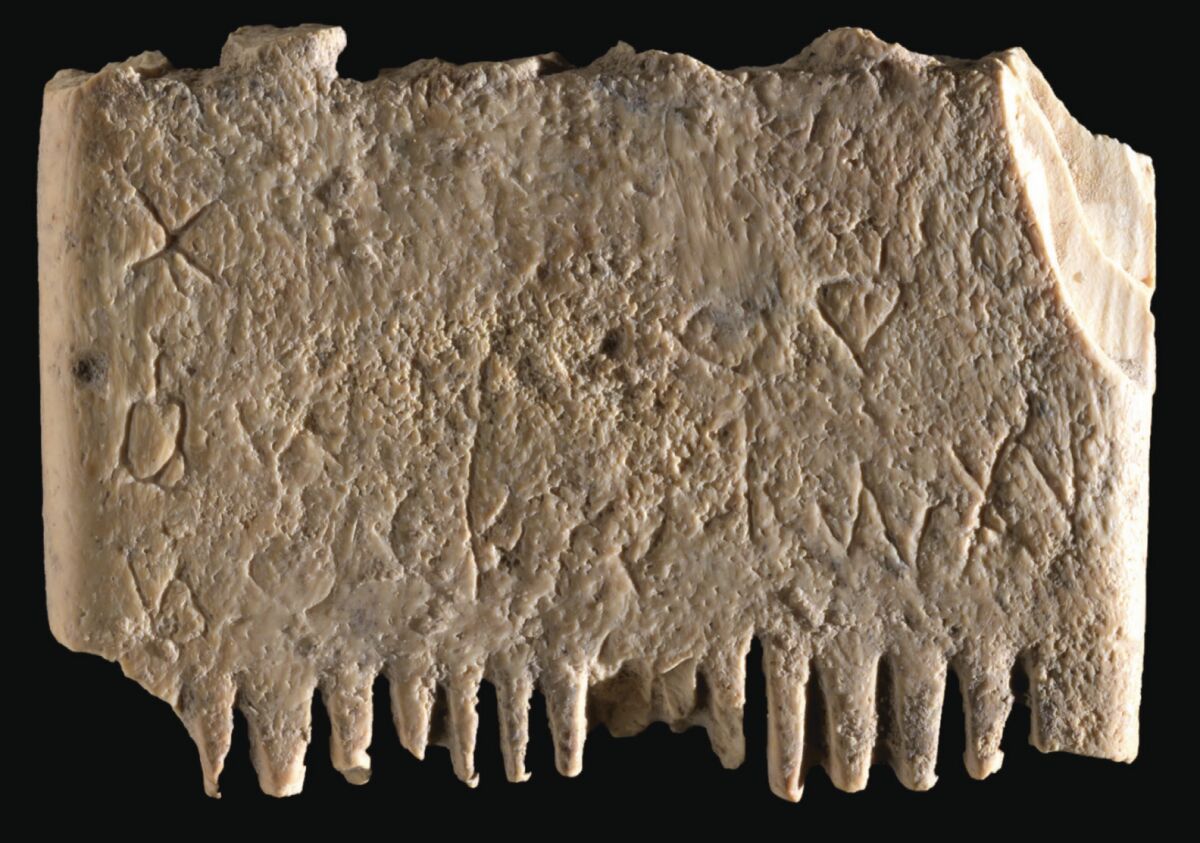
In this vein of as-yet-unknown Semitic words in Hebrew that can be found in early contexts: Recently unveiled was the discovery of a lice comb at Lachish, containing the “earliest alphabetic inscription ever discovered in Israel”—dating somewhere around 1700 b.c.e. One of the words contained in the inscription is unknown in Hebrew—but does have parallel in South Arabian script.
Regarding this Arabic answer, in the words of the affectionately named “father of biblical archaeology,” Prof. William F. Albright: “The explanation of the older lexicographers, including Gesenius, that the second element [of Abraham’s name] is Arab. ruhâm, numerus copiosus, is still accepted by many … the popular etymology explaining the name as ab hāmôn, ‘father of a multitude,’ may have been based on an obsolete Hebrew cognate of Arab. ruhâm” (“The Names Shaddai and Abram,” 1935).
The Arabic form is a tantalizing option. But is this as deep as we can go—stopping at a Classical Arabic word, and musing on an early Hebrew equivalent? Not according to Albright.
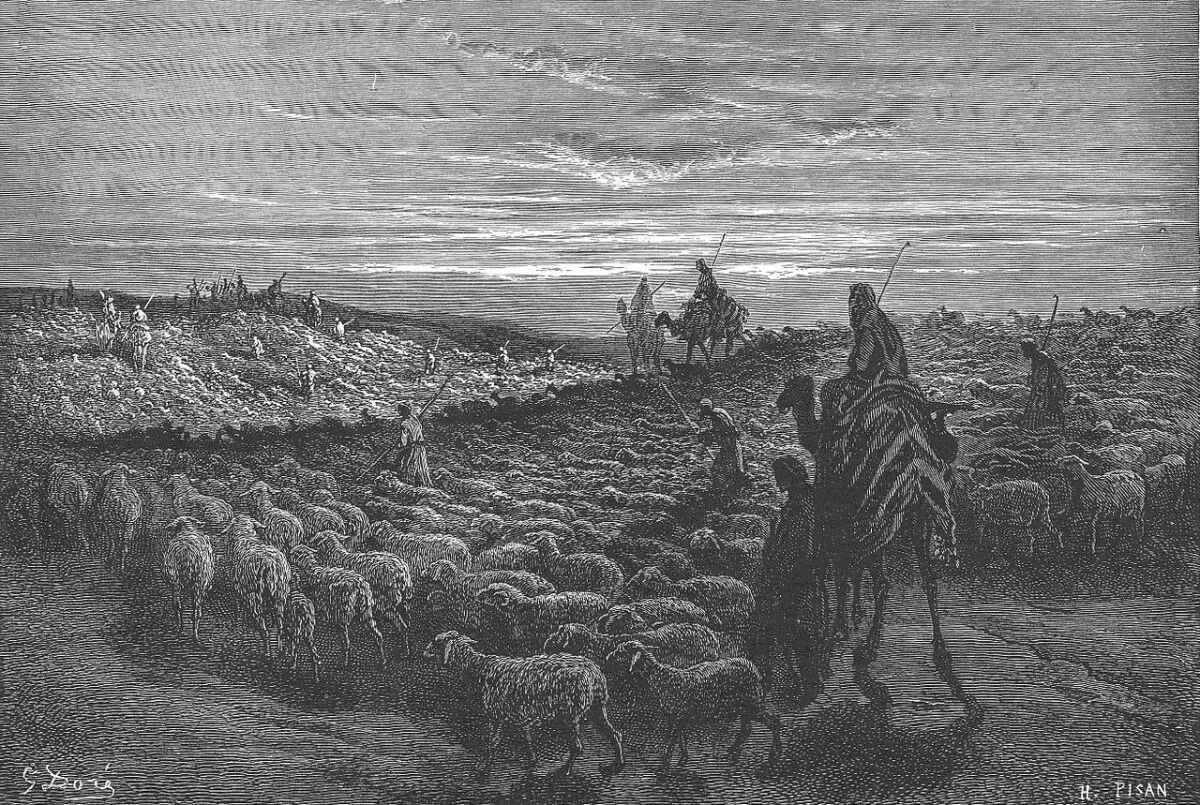
Aramaic Answer?
Albright suggests instead that “[t]he most plausible solution is perhaps that Abrāhām was a dialectic Aramaic form, preserved by the ancestors of the Israelites from the days when they lived in northwestern Mesopotamia and spoke an early form of Aramaic” (ibid.). He proceeds to give some linguistic examples of this, though his single-paragraph tangential discourse on this point does not go any deeper (the focus of his article, after all, is on the name Abram, rather than Abraham).
But an Aramaic connection is interesting from another biblical perspective entirely.
Deuteronomy 26 contains the outline of a commanded declaration to be made by Israel during a certain firstfruits ceremony, which acknowledged Israel’s ancestry. “And thou shalt speak [at this ceremony] and say before the Lord thy God: ‘A wandering Aramean was my father, and he went down into Egypt, and sojourned there, few in number; and he became there a nation, great, mighty, and populous. And the Egyptians dealt ill with us …” (verses 5-6).
The inference in this much-compacted storyline is that either Abraham or Jacob (the specific reference is debated, although it doesn’t really matter for our purposes here) was a “wandering Aramean” (sometimes rendered “Syrian” in other translations—the territories are synonymous, and “Syrian” is the more meaningful modern name). Indeed, this was where the wider family of Abraham could be found—this Aramean location in northwestern Mesopotamia. It was the location of Haran, where Abraham, his father and others in the family migrated (Genesis 11:31-32, 12:4). It was where Abraham, dwelling in Canaan, sent his servant to find his son, Isaac, a wife (“thou shalt go unto my country, and to my kindred, and take a wife for my son”—Genesis 24:4). It was where Isaac and Rebekah sent their son Jacob to find a wife (Genesis 28-31; “And Isaac sent away Jacob; and he went to Paddan-aram unto Laban, son of Bethuel the Aramean, the brother of Rebekah, Jacob’s and Esau’s mother”—Genesis 28:5). It also helps explain the otherwise unusual presence of “Aramaisms” in this biblical context.
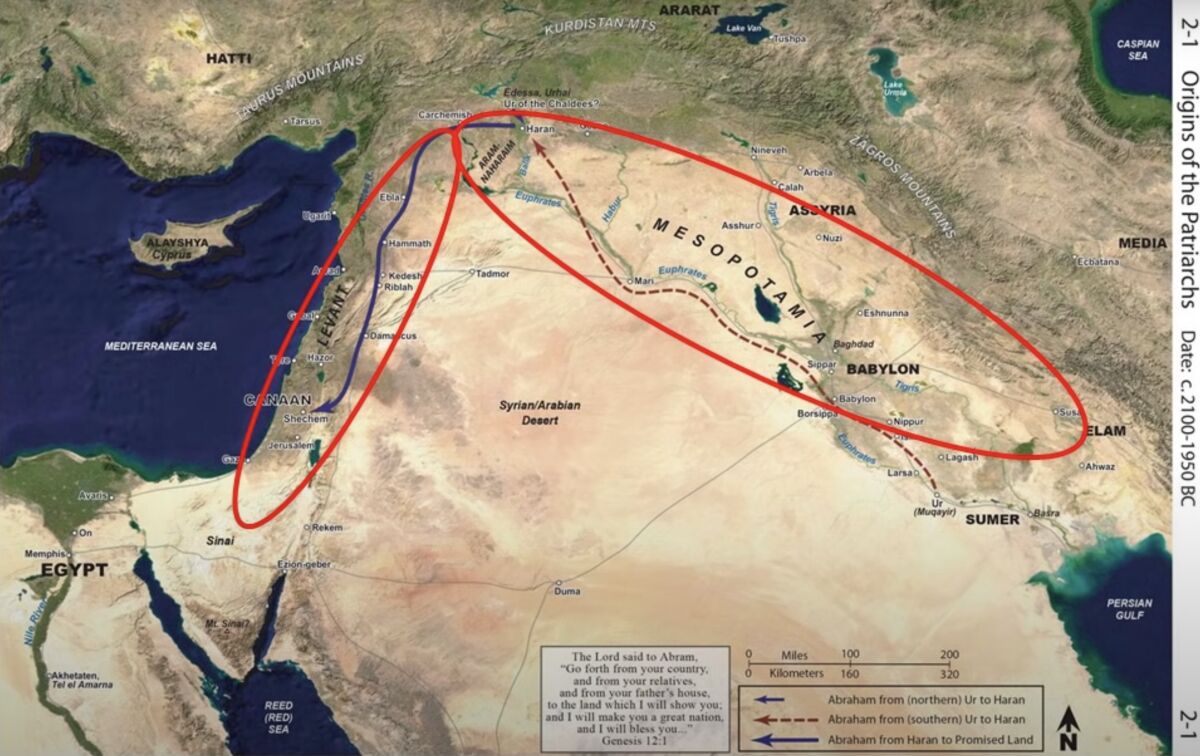
Aramaic, likewise, is a “brother” language, a branch of the same Semitic tree as Hebrew and Arabic. Of course, this particular language is well known as the adoptive tongue of the Jews following the Babylonian destruction circa 586 b.c.e. and during the diaspora. Centuries prior, it was also one of the major languages of the Assyrian peoples dwelling in this Syrian/Mesopotamian region (i.e. 2 Kings 18:26, and our related article here). Clear inscriptional examples of the use of the Aramaic language go back as far as circa 1000 b.c.e., and though earlier inscriptions are more piecemeal and fragmentary (as with Hebrew itself), the language was clearly being used prior.
W. O. Sproull, in his 1888 Hebraica journal entry “The Native Language of Abraham,” posited that “[i]t would be reasonable to infer that the native language of Abraham was Aramaic,” pointing to this same Deuteronomy 26 passage where “reference is made to Abraham as the Syrian.” Sproull presented another biblical example illuminative of what would have been Abraham’s native tongue (though it was evidently less so for Jacob at this point in time):
The conclusive argument, however [as to identifying Aramaic as the language of Abraham’s extended family], is to be taken from Gen. xxxi., according to which Jacob and Laban made a heap of stones, commemorative of their covenant. Jacob gave it a Hebrew name, Galeed, גלעד, heap of witness, but Laban called it Jegarshahadutha יגרשהדותא, which has the same meaning as Galeed. This compound Jegarshahadutha is Aramaic. The only reason why Laban would use Aramaic, would be because it was his own language and that of the country in which he lived.
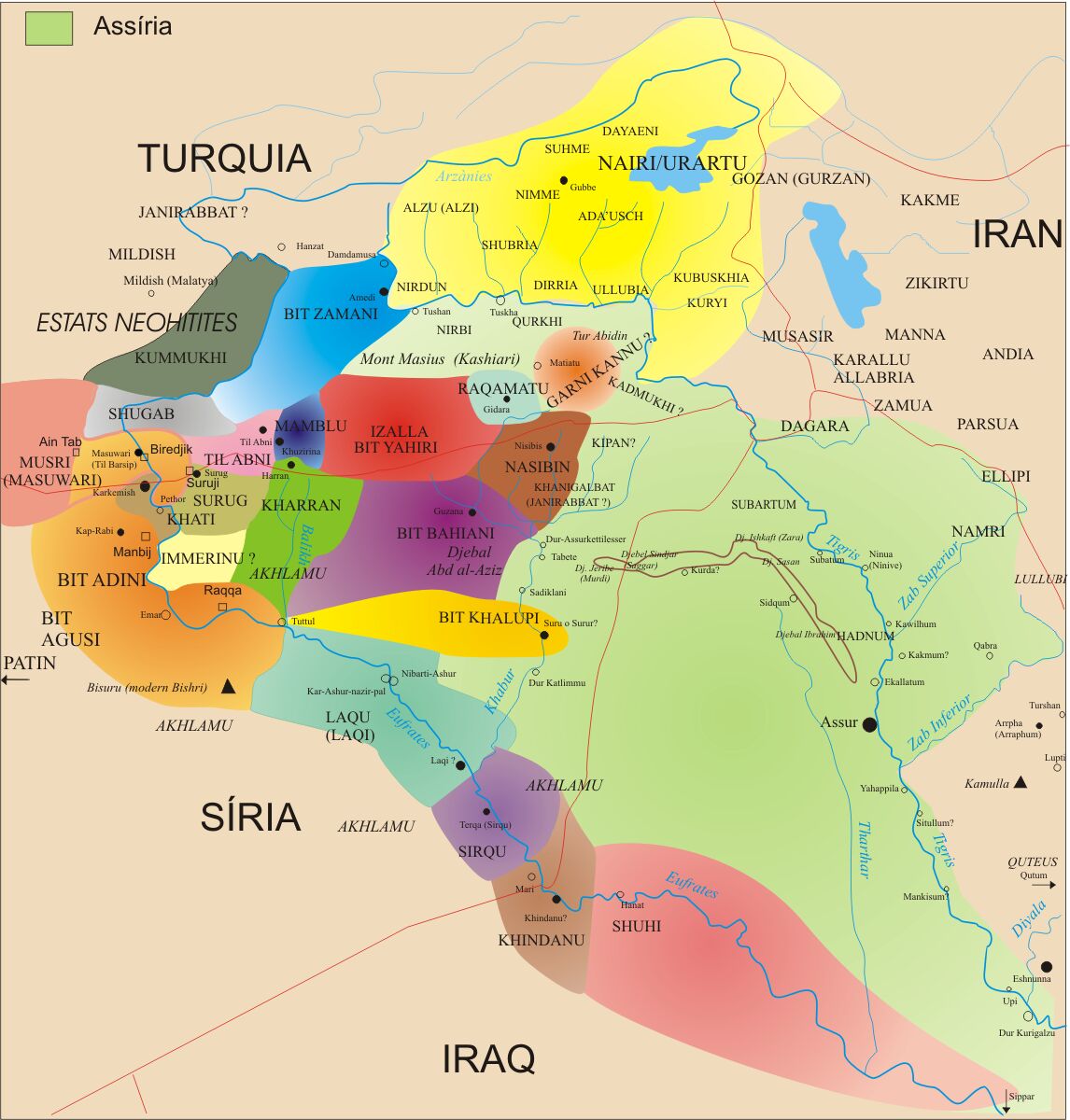
Based upon such clues from Abraham’s extended family, Sproull went on to posit that though Abraham would have been familiar with Hebrew (and that this would be the language of Isaac, Jacob, etc.), Aramaic would have been his “mother tongue.”
That theory is all well and good—but what, then, of Aramaic in relation to the name Abraham? Is there any recognizable Aramaic link to the name?
Albright wrote: “The most plausible solution is perhaps that Abrāhām was a dialectic Aramaic form, preserved by the ancestors of the Israelites from the days when they lived in northwestern Mesopotamia and spoke an early form of Aramaic. The insertion of secondary hê in weak verbal stems, particularly mediae waw, is well known; cf. Heb. rûs, Aram. rht, Heb. bôš, Aram. bht, etc.”
ה For ו?
To make Albright’s technical terminology a little clearer, and apply it to the name Abram/Abraham: Remember that Abram consists of the names Ab (אב) and Ram (רם), the latter identified as a contraction of Rom (רום). This latter root word contains a medial waw (ו, “o/u” sound, a letter usually represented as W in transliteration). As Albright noted, the insertion of a medial he (ה), rather than a Hebrew waw (ו, “o” or “u” sound), is a well-attested Aramaism. As related in the examples of equivalent words he gave (ignore the final letters, as there is another reason for the “s” and “t” interchangeability): the Hebrew rUs = Aramaic rHt; and the Hebrew bOs = Aramaic bHt. Therefore, the Hebrew “rOm” (רום, “exalted”) root of Abram/Ab-rom could justifiably be represented as an Aramaic “rHm” (רהם), making AbRaHaM out to be an Aramaic-form name.

Again, in relation to the name Abraham, this is as far as Albright took the matter. His later counterpart, the distinguished Bible and Near East scholar Prof. John van Seters, in his 1975 book Abraham in History and Tradition, states of the same: “This dialectic [H for W] phenomenon is found in a few instances in Ugaritic [a dialect specific to northwest Syria] and Phoenician [again northern, modern Lebanon/Syria] (though not with weak verbs) but is more characteristic of Aramaic and South Arabic.”
So what are we to infer from this?
The Aramaic nature of the name Abraham, based upon rhm (רהם), seems logical in one respect—but entirely illogical from another. If AbraHam is simply an elongated, Aramaic form of Abram (based on the root Ab-rOm), that would give Abram and Abraham literally exactly the same meaning—”exalted father.” The Interpreter’s Dictionary of the Bible essentially admits as much: “It is best to take ‘abraham as an Aramaic expansion of ‘abram, and basically identical with it in form and meaning. Raham would then be a longer, Aramaic form of the Hebrew ram, with the h filling in the weakness in the ‘hollow root’ rwm.” In a similar summary from van Seter: The “most obvious explanation of the variant ‘Abraham’ is to consider it as a dialectic form of ‘Abram.’”
How does that make any sense? Why bother with a name change at all?
It doesn’t make sense—not unless “exalted father” was never the meaning of the original name “Abram.”
Akkadian Answer
Albright’s above-quoted article, “The Names Shaddai and Abram,” while briefly speculating on the meaning of Abraham, is primarily a study on the former name Abram. In it, he draws attention to a series of Babylonian tablets.
It turns out that a parallel name to Abram can be found on five separate Babylonian documents dated to circa 1850 b.c.e., which were unearthed in Dilbat (just south of Babylon proper) and first published in 1909. These documents contain several references to a certain individual named Abarama (also variantly spelled Abamrama or Abamram). This is identical to the name Abram—as van Seters notes of the tablets, “[w]ith the loss of mimmation this would be represented in a consonantal text as אברם,” the precise Hebrew equivalent Abram.
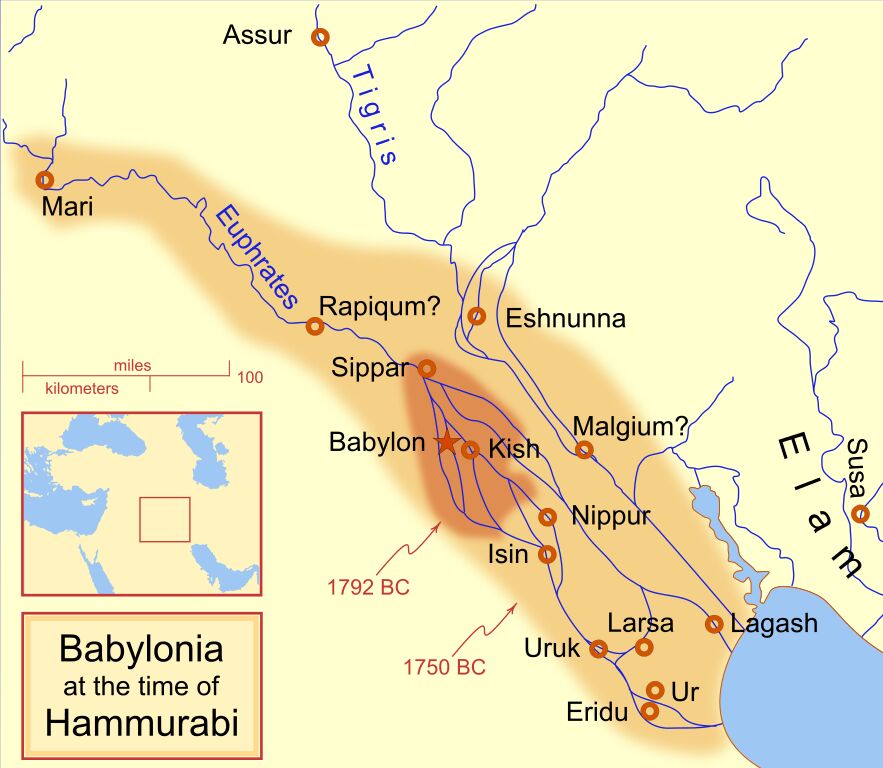
This should ring several bells, as it has another clear and evident biblical connection. Abram and his family, of course, famously departed out of the pagan Babylonian Empire for Canaan (more can be read about this subject here). Discovery of this “Abarama” Abram equivalent therefore stands on its own as a fascinating parallel in geography as well as use during the correct time period (though the individual on the tablets is apparently a different one, given the name of his father, Awil-Ishtar).
The language here is also of particular note. Akkadian was an East Semitic language used in Babylon during this second millennium b.c.e. It is another language related to Hebrew, Aramaic and Arabic—except it’s a much earlier tongue—it is the earliest-documented Semitic language. (Essentially, Akkadian can be thought of as one of the great post-Tower of Babel languages. It emerged directly alongside, yet is strangely completely unrelated to, the neighboring Elamite and Sumerian “language isolates,” whose unusual development are still are a point of confusion for scholars. Take a look at our article “The Sumerian Problem—Evidence of the Confusion of Languages?” for more on this subject.) These Semitic languages—of which Akkadian is like the grandaddy—take their eponymous name from the famed son of Noah, Shem (from whom Abraham, of course, is derived). And the name Akkadian is taken from its relation to the great city Akkad, also specifically mentioned in this Tower of Babel account as Accad (alongside the above-mentioned Elam and Shinar; Genesis 10:10, 22).
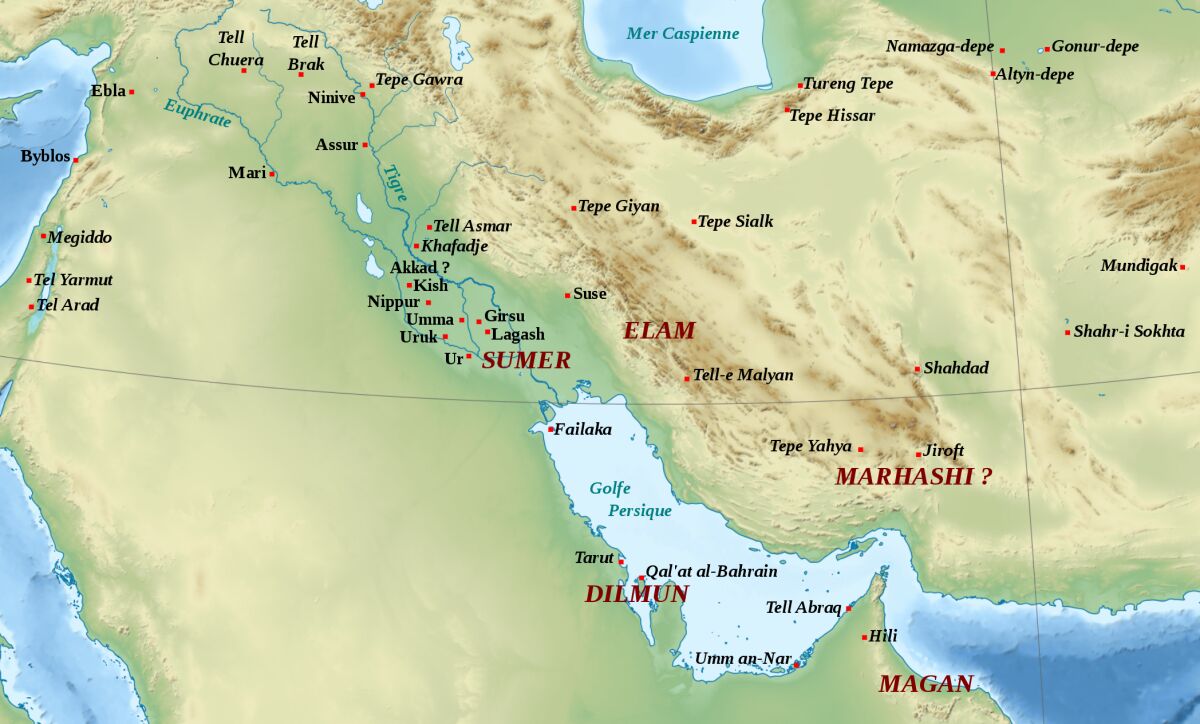
The Babylonian/Akkadian name Abarama, then, is an exact match for the name Abram, אברם. Van Seters notes that Abarama “is not ‘Amorite’ [as others had speculated] but native Akkadian.”
But unlike the Hebrew/Arabic/Aramaic equivalents, in the Akkadian language, Abarama does not mean exalted father.
It means something akin to beloved father.
‘Loved’ vs. ‘Exalted’
Albright’s publication came nearly a half century prior to van Seter’s. At that time, Albright was of two minds as to whether or not Abarama was East Semitic, thus Akkadian, or West Semitic/Amorite (thus essentially an Aramaic/Hebrew/Arabic variant). Nevertheless, he presented at some length the meaning of the name for both.
The explanation of the name [Abarama/Abram] offers certain difficulties, since it is not quite clear a priori whether it is Accadian or West Semitic. If the former, one should naturally consider the second element as from Accad. ra’âmu, ir’am, “to love” ….
Ungnad and Landsberger [German scholars] have both insisted on the Babylonian [Akkadian] origin of the name. Ungnad rendered it “Er hat den Vater liebgewonnen” [translated from German, “He developed a love for the father”] …. Landsberger’s view is: “… aus dem Akkadischen: „liebet den Vater” [from the Akkadian, “Love the Father”] ….
[R]âma in the name Abam-râma cannot be rendered otherwise than as a passive, “is loved,” according to the rules of Old Accadian grammar.
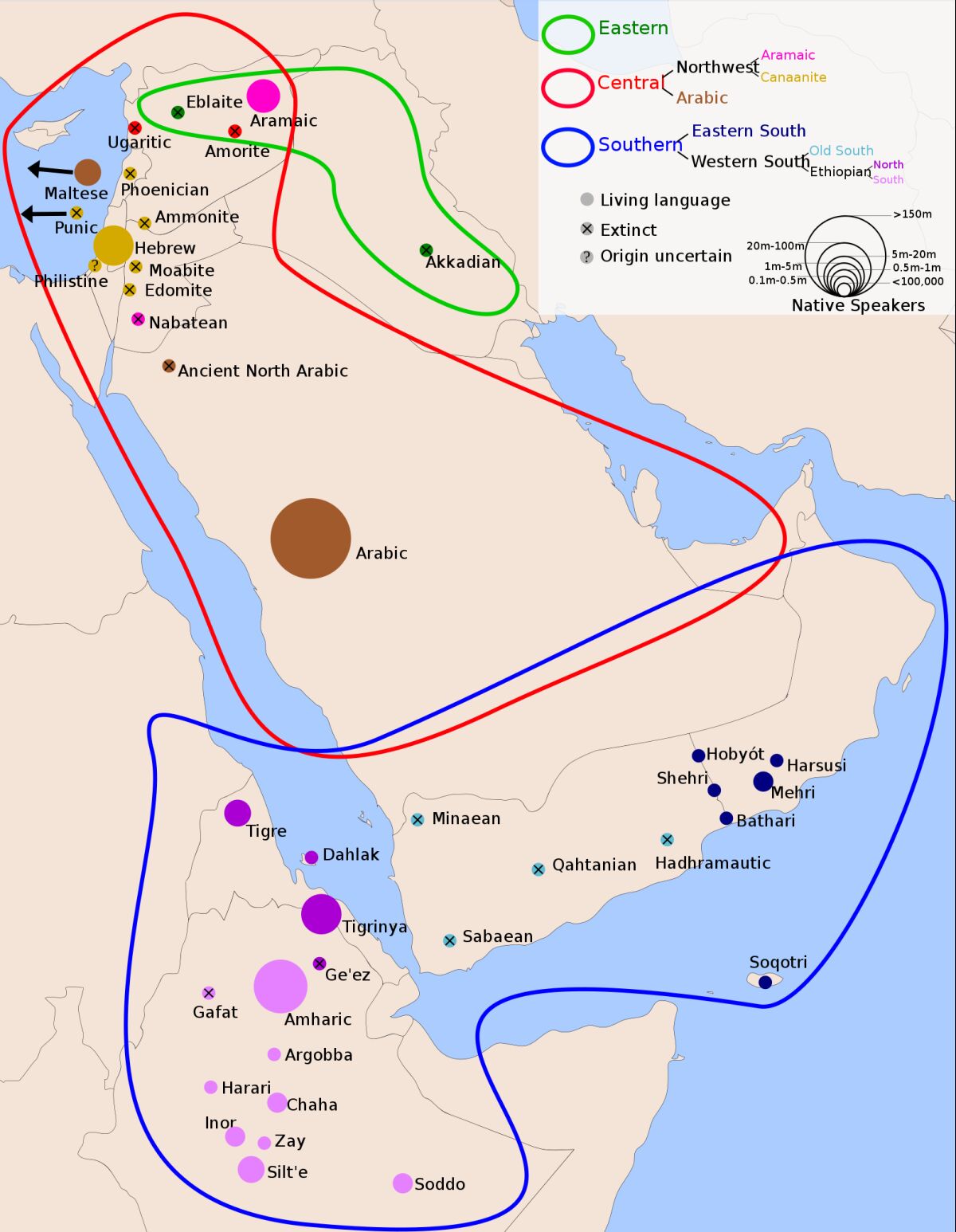
While there is a Babylonian Abram parallel, there is an uncanny lack of a Babylonian Abraham parallel. Albright wrote: “Unhappily, no direct light has yet been cast by the cuneiform inscriptions on the other form of the name, Abrāhām.” As such, Albright here deferred explanation of the latter name to the western, Aramaic connection. (But this only makes sense when paired along with the biblical account of Abram/Abraham’s life, where he migrated from Babylonian Ur to the West.)
Back to Genesis 17:5.
“Neither shall thy name any more be called Abram, but thy name shall be Abraham; for the father of a multitude of nations have I made thee” (Genesis 17:5). The typical explanation, again, is that the first name means “exalted father,” and the second name means either an Aramaic version of the same, or perhaps a somewhat fragmentary pastiche of Hebrew letters as “father of R a multitude.” Either that, or reflective of a Classical Arabic form, as “father of a multitude.”
But viewing this verse through the lens of Abram’s original name and meaning as East Semitic Babylonian/Akkadian, and his latter name as a West Semitic form (more akin to Aramaic), we can posit a translation of the scripture as follows: “Neither shall thy name any more be called Beloved Father, but thy name shall be Exalted Father; for the father of a multitude of nations have I made thee.”
After all, is it not at this point in Abram’s life—not before—that the patriarch, through this covenant, becomes the truly exalted father?
And interestingly, the Bible uses this same terminology in several other passages. The Hebrew rom (רום, or equally, as we have covered, Aramaic rhm, רהם) is used in describing God exalting someone among, above, or over nations (goyim)—in the same language as Genesis 17:5. Note, for example, Psalm 46:11 (verse 11 in the jps, verse 10 in most other translations): “Let be, and know that I am God; I will be exalted [rom] among the nations [goyim] ….”
But we are still left with one lingering question.
One Last Question—And An Amorite Answer
As we covered earlier, Sproull made a good biblical case for the language of Abraham’s family being more Aramaic and West Semitic. Yet as above, we have identified Abram’s original name as East Semitic, Akkadian/Babylonian. Can this be reconciled? How could this be?
Albright, apparently inadvertently, provided an answer. Here is what he commented with regard to the southern Babylonian documents that include the name Abarama (among others):
West-Semitic (East Canaanite) names are common at Dilbat …. The fact that the father of Abam-râma [Awil-Ishtar] bore an Accadian name does not prove that the name [of his son, Abamrama/Abarama] is Accadian; cf., among numerous examples in Bauer’s list, Yaqrî-ilu(um) son of Imlik-Sin, Yaršî-il(um) son of Lipit-Ištar, Hammurabi son of Sin-muballit.
Again, in Albright’s article, he was weighing the pros and cons of the name Abarama as either East Semitic Akkadian or West Semitic. (As seen above, he leaned toward the latter—but again, as we have covered, several scholars he quoted, as well as the later van Seters, settle unquestionably on the Akkadian identification.) Essentially, in a roundabout way, Albright hinted that just because certain individuals may have had East Semitic, Akkadian names, does not mean the individuals themselves were East Semitic—rather, they were West Semitic in orientation.
What did van Seters state? That Abarama “is not ‘Amorite’ but native Akkadian.” But it is certainly within the realm of possibility that an individual bearing such an Akkadian name—and at this point in time—was an Amorite. And this is what the broad overview of Babylon at this time reveals.
The Amorites are an umbrella group that spoke Northwest Semitic, largely occupying the Levant and northern/northwestern Mesopotamia. Their Levantine kingdom is otherwise known as the Amurru Kingdom (spanning primarily the modern-day territories of Syria and Lebanon). And around the period of 2000–1600 b.c.e., they also exerted dominance in large parts of southern Mesopotamia, in and around the territory of Babylon. The famous, powerful Babylonian ruler Hammurabi (19th or 18th century b.c.e.) was an Amorite ruler of the Old Babylonian Empire (more on him—and a potential scriptural connection to Abraham—in our article here). Certain inscriptional evidence even points to a deference at the time, in official Akkadian-language documents, to incorporating foreign-language conventions from surrounding nations.
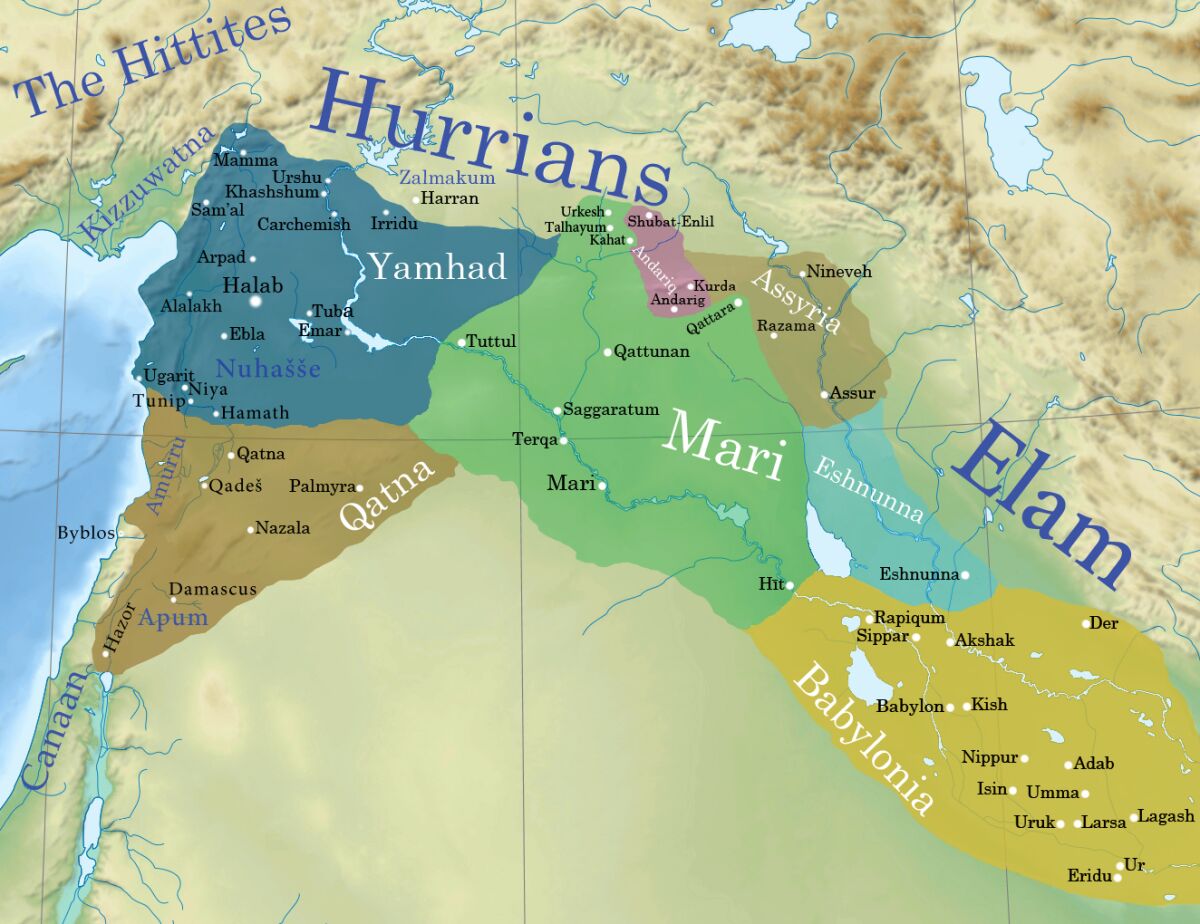
Was Abraham’s family, then, in some form essentially an Amorite one, living within the Babylonian Empire? A family largely speaking the same West Semitic language, but living in an East Semitic-speaking, Babylonian melee—with the patriarch bearing (not unusually) an East Semitic, Akkadian name?
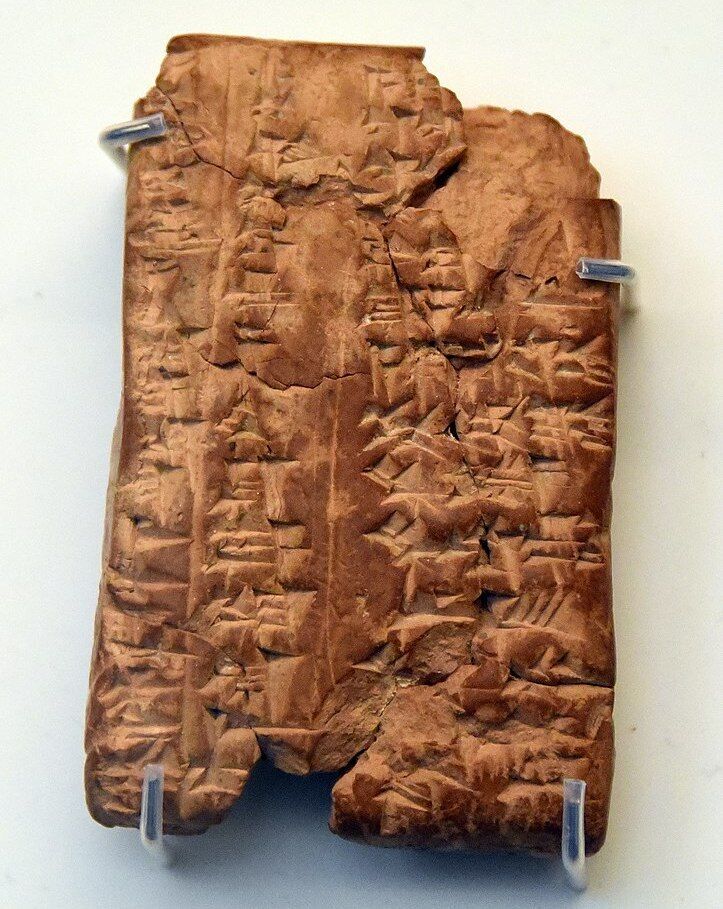
There are, again, several verses which illustrate this very thing.
Genesis 14:13 describes Abram, while in Canaan (the very fringe of Amorite territory), choosing to dwell among certain “Amorites” living there—and it states that these “were confederate with Abram.” (The Hebrew word “confederate” also means covenanted.) Why?
Here’s another peculiar verse. Ezekiel 16:3 is a poetic description of Jerusalem (a city first mentioned, as a matter of fact, in the Genesis 14 account): “Thus said the Lord God unto Jerusalem; Thy birth and thy nativity is of the land of Canaan; thy father was an Amorite, and thy mother an Hittite” (King James Version).
And in a vision to Abraham, God assured (or perhaps reassured?) him that the conquest of the Promised Land—Israel’s eventual execution of divine wrath—would not happen for several generations, because unlike other groups living within Canaan, “the iniquity of the Amorites is not yet full” (Genesis 15:16).
Coming Full Circle
In sum: Abraham’s family was a West (or Northwest) Semitic family, essentially falling under the “Amorite” umbrella (at least linguistically and geographically), in native association. They were native speakers of a West Semitic language, from which was derived Aramaic, Hebrew, Arabic, etc. Abraham’s family was—as with many other “Amorites” during this specific period (start of the second millennium b.c.e.)—living in the East Semitic, Akkadian-speaking Babylonian Empire initially. And Abraham’s original name, Abram, was an Akkadian name meaning something like “Beloved Father.”
Following Abram’s migration west, part of the family stayed put in or around Haran (near the northern border of Syria; Genesis 11:31), among fellow Aramaic-speaking, West Semitic countrymen (this natural deference could well explain why they stayed in this area). Then, following Abram’s commanded further migration south into Canaan, to the fringes of Amorite territory (yet among whose people he apparently still gravitated), and following his obedience to God and fulfilment of certain tests and trials, he was renamed with the West Semitic, more Aramaic-oriented name Abraham, meaning “Exalted Father,” with the promise that this patriarch would become exalted as a “father of a multitude of nations” (Genesis 17:5).
In short, to distill a long article down to a single sentence: Abram as an East Semitic, Akkadian-Babylonian name meaning “Beloved Father”; Abraham as a West Semitic, Aramaic-inclined name meaning “Exalted Father.”
Father—And Name—Of Many Nations

Is Abraham Hebrew? Is it Arabic? Aramaic? Amorite? West Semitic? It could justifiably be said, in its manifold derivative forms and similarities, that it is all of the above. Probably a better single identification is that the name is “Semitic”—derived from Shem.
This is only fitting for the patriarch, though. Abraham was a “father of many nations.” He was a “Hebrew” (Genesis 14:13); an “Aramean” (Deuteronomy 26:5); a Babylonian (Genesis 11:28-29); father of the Israelites; father of the Arabs. And possibly, “father” of the Spartans? (Connections to the great patriarch have even reached as far East as India—some have drawn connection to the Indian deity Brahma and his sister-wife Saraswiti as a derivation of Abraham and his wife Sarah.)
As an “exalted father” of “many nations,” it is only fitting that Abraham’s very name, too, can best be understood through the light of “many nations”—through the respective languages of his manifold descendants.
See also: What Does the Name ‘Sarai’ Really Mean?

